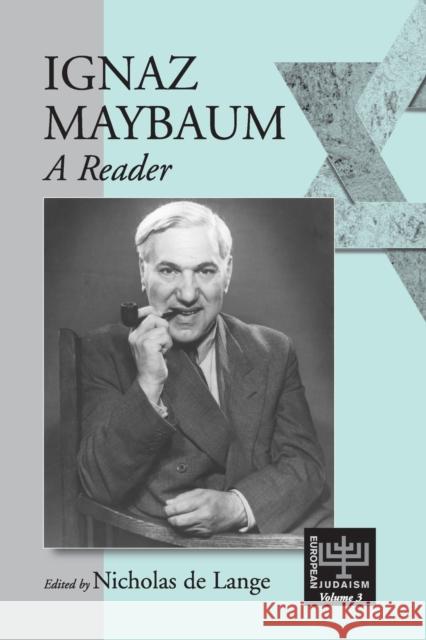Ignaz Maybaum: A Reader » książka
Ignaz Maybaum: A Reader
ISBN-13: 9781571813220 / Angielski / Miękka / 2001 / 256 str.
Ignaz Maybaum: A Reader
ISBN-13: 9781571813220 / Angielski / Miękka / 2001 / 256 str.
(netto: 129,84 VAT: 5%)
Najniższa cena z 30 dni: 135,22
ok. 22 dni roboczych.
Darmowa dostawa!
"This well-put-together anthology contains a lot of interesting material, especially in the interfaith section." - Jewish Chronicle ..". a useful tool for students and lecturers in the field of Jewish Studies and interreligious dialogue accessing the work of Maybaum which is otherwise difficult to locate." - Reviews in Religion and Theology Ignaz Maybaum (1897-1976) is widely recognized as one of the foremost Jewish theologians of the post-Holocaust era. Although he is mentioned in most treatments of post-Holocaust Jewish theology, his works are out of print and are only accessible to a small readership. Nicholas de Lange (who worked closely with Maybaum in his lifetime), has made a representative selection from his writings, under various headings: Judaism in the Modern Age, Trialogue between Jew, Christian, and Muslim, the Holocaust, and Zion. In an Introduction, he sets Maybaum's thoughts against the background of their time, indicates their main lines, and assesses how much of them is still of value today. Nicholas de Lange teaches in the Faculty of Divinity, University of Cambridge.
"This well-put-together anthology contains a lot of interesting material, especially in the interfaith section." - Jewish Chronicle"... a useful tool for students and lecturers in the field of Jewish Studies and interreligious dialogue accessing the work of Maybaum which is otherwise difficult to locate." - Reviews in Religion and TheologyIgnaz Maybaum (1897-1976) is widely recognized as one of the foremost Jewish theologians of the post-Holocaust era. Although he is mentioned in most treatments of post-Holocaust Jewish theology, his works are out of print and are only accessible to a small readership.Nicholas de Lange (who worked closely with Maybaum in his lifetime), has made a representative selection from his writings, under various headings: Judaism in the Modern Age, Trialogue between Jew, Christian, and Muslim, the Holocaust, and Zion. In an Introduction, he sets Maybaums thoughts against the background of their time, indicates their main lines, and assesses how much of them is still of value today.Nicholas de Lange teaches in the Faculty of Divinity, University of Cambridge.











